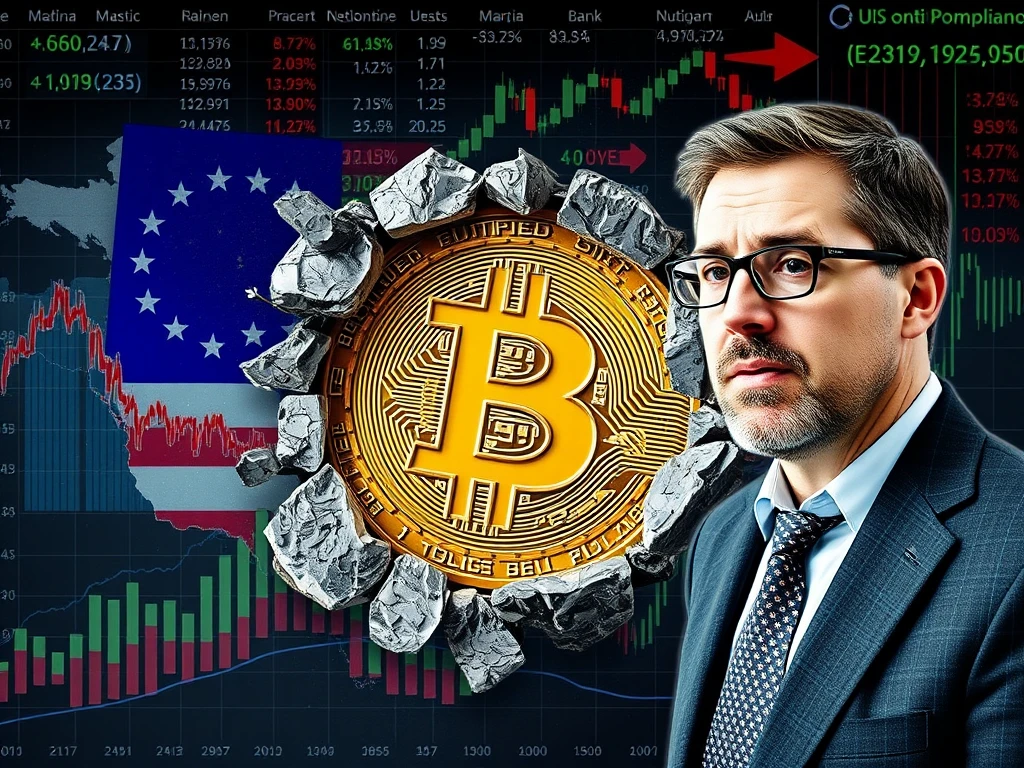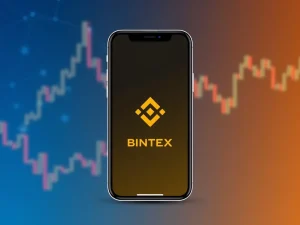Secret Revealed: Bitcoiners First to Realize US Economic Data Was Wrong – Market Analysis

Are you feeling uneasy about the current economic narrative? You’re not alone. A prominent voice in the crypto world, Anthony Pompliano, suggests that Bitcoiners were ahead of the curve in spotting flaws in US economic data. Let’s dive into why Pompliano believes Bitcoin holders were the first to see cracks in the official figures and how this realization has significant implications for the market.
The Bitcoin Early Warning System: Spotting Flaws in US Economic Data
Pompliano’s recent statement on X (formerly Twitter) highlights a fascinating perspective: Bitcoiners, often deeply invested in understanding macroeconomic trends due to Bitcoin’s nature as a decentralized and alternative asset, were quick to recognize discrepancies in US economic data. He asserts, “Bitcoiners were the first large-scale group to recognize the economic data was wrong, and they figured out a way to financially capture upside if they were right.”
This isn’t just about bragging rights. It’s about a fundamental disconnect between official reports and on-the-ground economic realities. Pompliano suggests that Bitcoiners, perhaps through a combination of independent research, skepticism towards centralized institutions, and a keen eye on alternative indicators, identified these inaccuracies before mainstream finance.
Why Mainstream Finance Missed the Mark on Economic Data Accuracy
Pompliano points out a critical reason why traditional finance analysts might be lagging: reliance on potentially flawed government data. He calls it an “unspoken secret” that many finance professionals blindly trust official figures when analyzing economic factors like tariffs. This trust, according to Pompliano, leads to inaccurate analysis and missed opportunities.
The skepticism around economic data accuracy isn’t new. Concerns have been growing, with reports from as far back as July 2024 emphasizing the need for updated approaches to maintain the reliability of government statistics. Even more strikingly, Pompliano references a March 20 LinkedIn post where he highlighted US Treasury Secretary Scott Bessent’s admission on the All-In podcast that he doesn’t trust the data. This high-level doubt further fuels the argument that official figures might not paint a complete or accurate picture.
Tariffs, Inflation, and the Bitcoin Response: A Market Analysis
The backdrop to this discussion is the uncertainty surrounding former US President Donald Trump’s tariffs. These tariffs, intended to bolster the US economy, have instead raised concerns about their impact on inflation and overall economic health. While some Wall Street analysts initially believed tariffs would strengthen the US dollar, the market response suggests otherwise.
Here’s a look at the market dynamics:
- US Dollar Decline: The US Dollar Index (DXY) has seen a significant drop, falling 3.19% in the past five days and 8.06% since the start of 2025. This decline suggests a weakening dollar, potentially undermining the anticipated positive effects of tariffs.
- Bitcoin’s Resilience: Interestingly, while the stock market experienced a downturn on April 4th due to tariff uncertainties, Bitcoin showed remarkable resilience. It didn’t decline as sharply as expected and even rallied to $84,720 as US equities faltered.
- Bitcoin as an Alternative: This divergence highlights Bitcoin’s potential as a safe haven or alternative asset during times of economic uncertainty. As the US dollar weakens and faith in traditional economic indicators wavers, investors may be increasingly looking towards Bitcoin and other cryptocurrencies.
This market behavior reinforces the idea that Bitcoin could be emerging as a viable alternative to traditional assets, especially if concerns about inflation and the accuracy of economic data persist.
Bitcoin’s Breakaway from Stocks: A Shift in Market Dynamics?
Analysts have noted Bitcoin’s recent decoupling from the stock market. Historically, Bitcoin and crypto assets have been considered more volatile than stocks, often mirroring or even amplifying stock market trends. However, the recent price action suggests a potential shift.
Key Observations:
| Market Event | Stock Market Response | Bitcoin Response |
|---|---|---|
| April 4th Tariff Uncertainty | Market “tanking” | Steady, rallied to $84,720 |
This divergence could indicate a growing recognition of Bitcoin as a distinct asset class with its own drivers, separate from traditional market forces. Arthur Hayes, former BitMEX CEO, even suggests Bitcoin might be entering an “up only mode” as bond market crises potentially drive investors towards alternative stores of value.
The Mainstream Finance “Boondoggle” and the Bitcoin Solution
Pompliano argues that mainstream finance has become an “intellectual boondoggle,” where many analysts simply regurgitate poorly informed opinions based on unreliable data. In this environment, Bitcoin, and the community around it, offers a different approach – one that questions conventional wisdom and seeks to understand the underlying economic realities, even when they diverge from official narratives.
Is Bitcoin the Answer?
While it’s too early to definitively say Bitcoin is the ultimate solution to economic uncertainty, Pompliano’s insights and recent market behavior suggest a compelling case. Bitcoiners’ early recognition of potential flaws in US economic data and Bitcoin’s resilient performance amidst market volatility indicate a growing role for cryptocurrencies in the evolving global financial landscape.
As concerns about inflation, data accuracy, and traditional market stability persist, Bitcoin’s unique characteristics – decentralization, scarcity, and independence from traditional financial systems – may become increasingly attractive to investors seeking alternative stores of value and hedges against economic uncertainty.
The Takeaway: Keep a close eye on both official economic data and alternative indicators. The crypto market, particularly Bitcoin, may offer valuable signals and opportunities as the global economic landscape continues to evolve. The “secret” that Bitcoiners recognized early on might just be the beginning of a broader shift in how we understand and navigate the economy.








